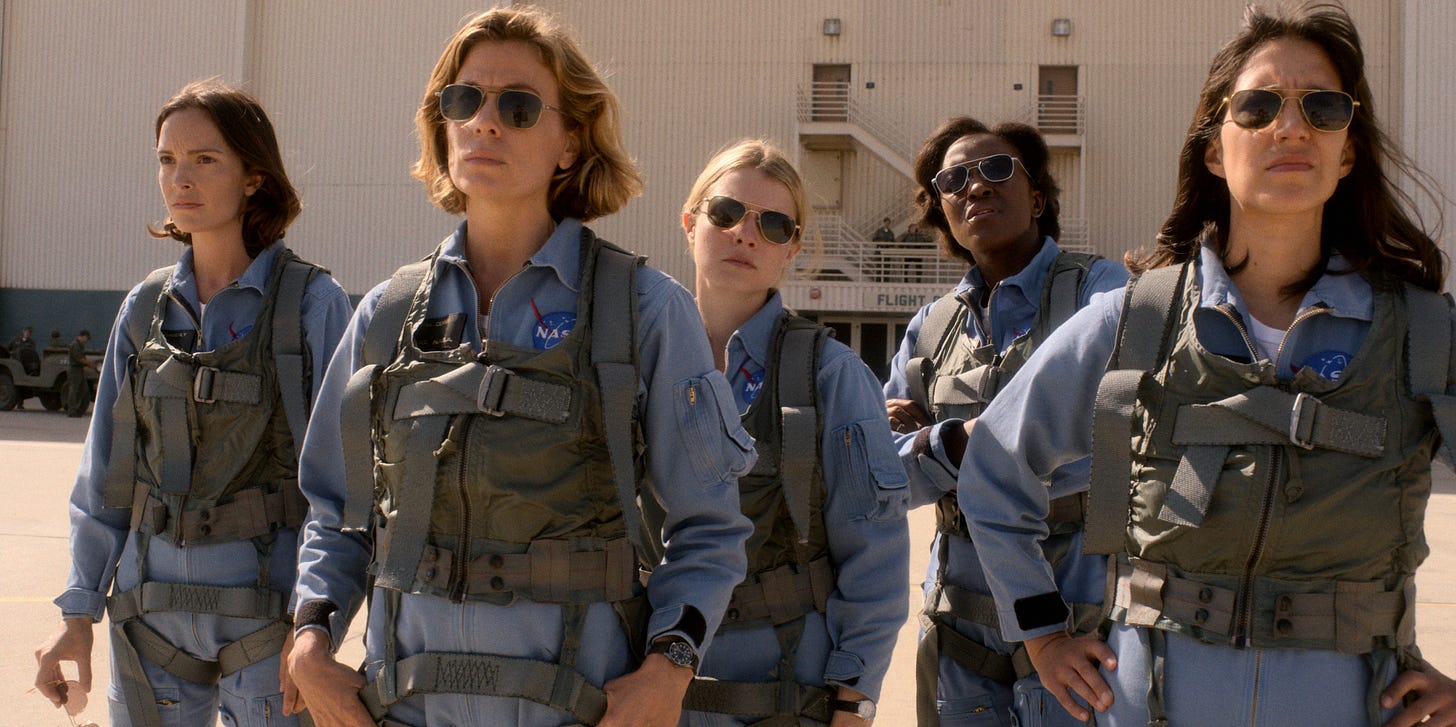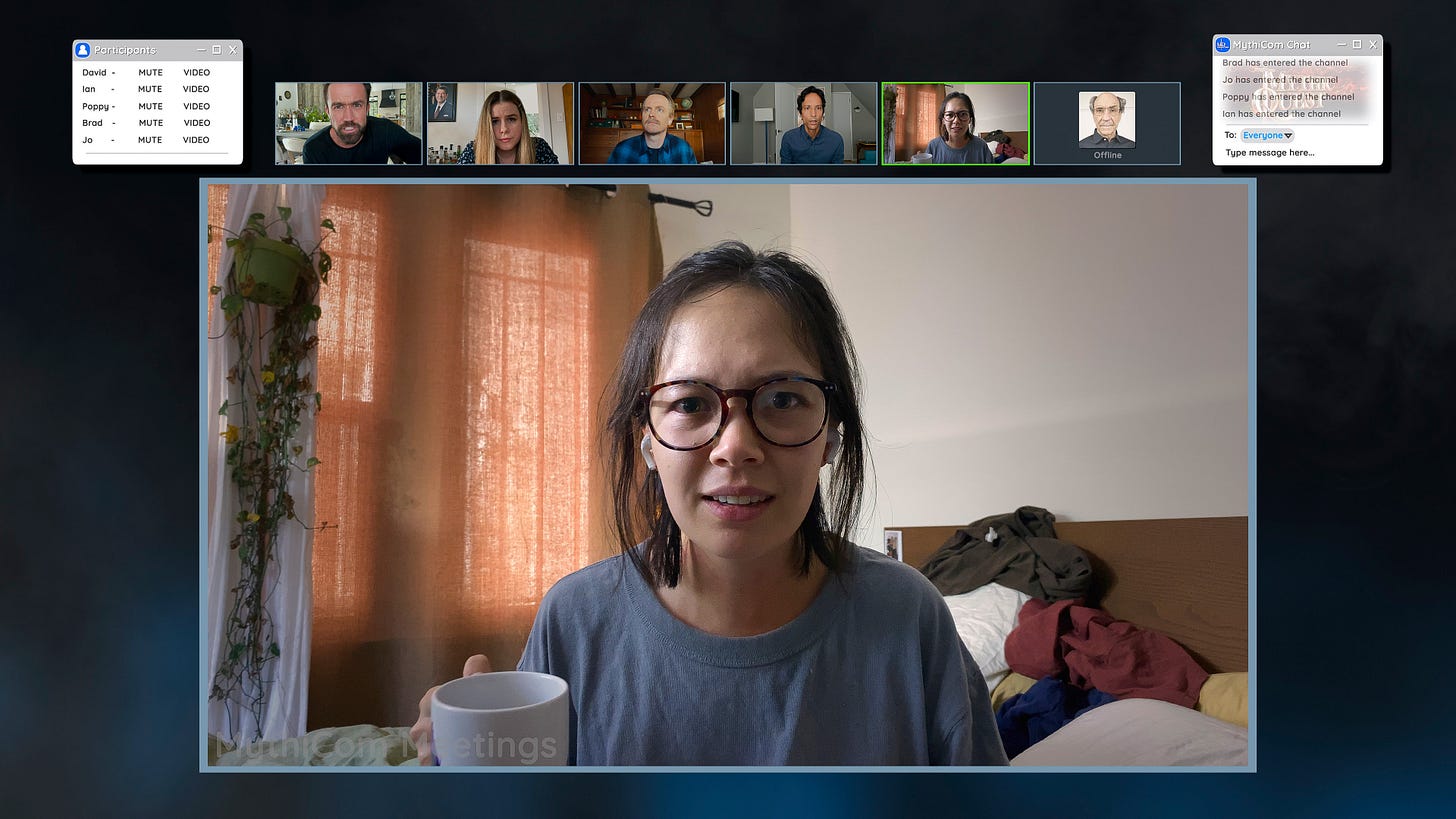Week-to-Week: Choosing a Rainy Day Show
The first installment of the Episodic Medium Newsletter
Welcome to the first installment of Week-to-Week, the newsletter for my Substack, Episodic Medium. This will arrive to all subscribers each Monday (at least for now, given what else I am covering, the day could change in the future)—subscribe for free to get it directly to your inbox, and start a paid subscription to join the conversation. (Yes, you can also just tweet at me. But then your comments won’t be archived for all of time here!)
In 2019, I posted the above tweet asking about what shows people had been putting off for a “rainy day” that, realistically, was probably never going to come.1 It was effectively a self-subtweet, since there are a range of shows that I’ve either never watched or never finished that have been sitting for years. And when I revisited this question in January 2021 to see if anyone had decided that “pandemic” is an acceptable stand-in for a rainy day, the answer for me was still no, although I did eventually decide that “needing a distraction while preparing to return to in-person teaching in a pandemic” counted and caught up on For All Mankind, my favorite show of 2021, last August.

But after having surgery last month and ending up bedridden, I had finally stumbled into a rainy day I had been stockpiling for, and had to take stock of the hundreds of television shows I haven’t watched or finished and do the mental calculations to determine which was the best use of this unexpected opportunity. And it mostly just reminded me that the challenge of making a decision is a huge part of why my rainy day shows stay that way, and made me wonder what criteria others would have used in my situation.
Personally, there are three main criteria that entered into my thought process. The first is the relevance of the show in question: as a critic, and as a viewer, my instinct is always to try to enter into an existing conversation. This meant that I naturally gravitate to shows that are still on the air and that I’ll be able to join in progress at some point down the line, as opposed to a show that we’ve more or less talked about already.2
The second criteria is whether or not I actually need to watch the show in question to feel like I could have a conversation about it. For example, I stopped watching Euphoria after a couple of episodes, but social media has—especially this season—regurgitated the show without my having to watch it. If my students were to want to have a conversation about last night’s Euphoria finale, I could probably trick them into thinking I’ve watched it without having to actively search out the information, and that makes me less likely to devote the time to actually catch up on it. Same story with Succession: I’m sure I missed something just watching everyone tweet through the show’s third season, but I keep getting all the New York Times Crossword clues using the show right and could 100% play “Someone Who Watches Succession” at a party.
The third criteria is related, which is about searching for the absolute perfect level of social media conversation around a show. On the one hand, too much conversation renders catching up on a show seem unnecessary; on the other hand, though, too little conversation disincentivizes catching up since there’s little risk of being spoiled, and it also doesn’t create enough buzz to make you feel like it’s worth your time. What you’re looking for is the show that people tweet about enough to pique your interest, but never so much that you feel like you fully understand why people are excited about it.
And I’m not sure it’s a coincidence that the last two times I’ve done this, I’ve chosen Apple TV+ series that had aired two seasons, with a third on the way. After catching up on For All Mankind last summer, I landed on Mythic Quest last month, which fits these criteria perfectly.3 It’s coming back for a third season later this year, and while I’m aware of the basic premise of the show and its cast, none of the social media conversation around the show went into much detail on its storytelling. The social media chatter that I’d seen seemed high on the show, but usually in vague terms, like the buzz suggesting the show had the best “quarantine episode” or that it featured “standalone” episodes separate from the main narrative in each season. I read those tweets, stored them away in my brain, and when I settled into my recovery they rose to the surface as I hovered over seemingly dozens of different options.
The similarity to how I landed on For All Mankind last summer—nonspecific buzzy tweets accumulating over two seasons, but never blowing up into actual conversation that would spoil anything—reinforced for me that this is intrinsic to Apple TV+ as a platform. Outside of Ted Lasso, their shows—including Severance, the one I’m covering to start my reviews here at Episodic Medium—seem to live in this space where it’s like we’re almost not confident that enough people are watching them to talk about them. While we naturally treat HBO, Netflix, and Disney+ shows as a collective experience, I think there’s a mental block even for “legacy” streaming services like Hulu that keeps us from treating them the same way—when was the last time you felt like anyone was actually “talking about” The Handmaid’s Tale, for example?
Even as I did watch Mythic Quest, and had lots of thoughts about it, I still didn’t tweet them outside of my own vague post about the emotional impact of the Quarantine Episode (which did make me cry, but I was admittedly fresh out of my second stint in the hospital). I enjoyed the show as a whole, and would have loved to have had a more in-depth conversation about the standalone episodes and their impact on each season’s pacing (which was a problem in the second season for me), but it was like I had signed an imaginary contract to ensure that another person saving the show for a rainy day wouldn’t feel like I’d stepped over an invisible line. Instead, I just kept my thoughts to myself, waiting until the third season when I suppose I’ll vague tweet with the folks whose vague tweets brought me to this point.
Which is all to say that I’d love to hear about how you make this type of decision, which feels like it’s becoming more complicated as the streaming wars evolve: for example, could we collectively determine the precise day when a Netflix show shifts all the way from “if you aren’t watching this, you’re not allowed to be online” to “no need to catch up to this?” I’d love to hear from you, either her in the comments for paid subscribers or on Twitter (I’m also happy to talk about Mythic Quest, but I think we might need to talk in code).
Links-to-Links
Last week at Vulture, Kathryn VanArendonk wrote a great piece on “The Women’s Redemption Plot,” both because of its shrewd argument about empathy tourism and the fact it’ll help me have conversations about Hulu’s Pam & Tommy and FX’s American Crime Story: Impeachment, neither of which I am ever going to find a rainy day to watch (and which I’ve seen very little discussion about, per the above theory).
Put another way, these shows, movies, and docuseries are a form of tourism that takes contemporary viewers on a voyage to a past recent enough to be recognizable but distant enough that its customs and cultural guideposts now look bizarre. We are strangers in a strange land, and our tour guide is there to show us something special: the real story of a much maligned, often mocked, misunderstood woman. The genre may be about women’s redemption arcs, but the mode is empathy tourism. We get to travel back to this time and experience the inner life of someone whose interiority was unworthy or inaccessible.
But seriously, though, the Mythic Quest quarantine episode really is fantastic, and Vulture’s interview with Rob McElhenney captures the smart storytelling at the core of it, but also how it maybe a little easier to make an aesthetically successful Zoom episode when Apple’s on speed dial:
On a conference call with “the people in Cupertino,” McElhenney said, he suggested that each member of the cast would need three iPhones each to film their scenes. They’d shoot with one phone, then sterilize it and put it in a secure area outside their apartment or home, where it’d be picked up by a courier, brought to an editor, sterilized again, uploaded to Avid editing software, and then sent back to the actor. By cycling through cameras continuously, while also editing the episode together, the work could be done much faster. “I said, ‘If it’s possible to get 40 iPhones and 20 sets of AirPods, could you have them to us by the end of the week?’” McElhenney said. “There was a rep on the phone, and she said she’d already tracked them down, and would have them sent to my house by 5 o’clock.”
If you’re watching Severance along with me, I highly recommend Emma Stefansky’s Thrillist interview with production designer Jeremy Hindle:
“‘Every office had these stunning ceilings,’ he says. ‘It was all powerful lighting, powerful desks, powerful spaces where you felt like these were high-stylized working environments to really make it professional. It wasn't about happiness. It was about work, work ethic. And that feels like that's what Severance would be like. You're down there just to work.’”
And finally, in preparation for the March 9 return of Survivor and my coverage of said season, here’s me from December at The A.V. Club on the historically dull finale to Season 41, and how it’s lowered my expectations for what Season 42 will bring (and yet here I am still planning to cover it, ever the glutton for punishment).
“There are bits and pieces of the ‘new Survivor’ that were worth exploring, and which I’d like to see refined in future iterations of the game, but hearing Probst present Season 42 as a continuation of the experiment and seeing yet another dumb “Secret Phrase” situation doesn’t give me a whole lot of confidence that a judicious hand was taken in the short off-season. The only hope is that with another diverse cast, there’s a chance they can thrive in spite of what the game of Survivor is intent on being, but nothing about how Season 41 ended has left me optimistic about that possibility.”
If this had happened a month later, I probably would have gone back and watched the final season of Justified, which I didn’t get to as I was finishing grad school, and which I will watch before the forthcoming revival.
It was also fitting given I’m leading an independent study on the video game industry this semester, and every week I’m like “Y’know, they did a story about this on Mythic Quest.”





As with all things, my rainy day TV show list just keeps getting longer. At the top of it are Search Party, the last season and a half of Better Things, and the last two seasons of Catastrophe. The last one I knocked off it was Only Murders in the Building, which I burned through in a weekend a couple weeks ago. When I sit down ready to pick something off of the list, there are a couple factors:
1) Is another season coming soon, which would motivate me to catch up in time to join the conversation (hello, Better Things!). This is what got me to finally watch Succession last year.
2) Is it a show that has weirdly long legs, such that it's still getting discussed long after it aired (Only Murders).
3) For a show that I loved but fell off of, am I ready to finish it knowing there will never be more? This is where Catastrophe falls, made even more emotional by the Carrie Fisher element.
4) Vibes. Like, I know I will love Search Party. I like everyone involved in it, every critic I like speaks highly of it. But somehow the vibe is never right for me to watch that show. One of these years. There are a lot of shows that fall into this bucket; especially for ones which already ended and will never end up in category 1 again, there is just always going to be a high bar to finally get to it.
I have been spending less and less time engaging with TV on Twitter (where the urgency is real) and more time in Slack and Discord communities. What this means is that while, sure, there's some element of recentness (Yellowjackets, From, and Severance all benefit from the community buzz), there's actually a pretty big emphasis on going back to those rainy day shows for group watches. I'm currently running through Twin Peaks, Dark, and Justified for the first time thanks to those communities. So I feel a lot less of that pressure anymore! An older show will come around when these communities vote on a new weekly watch.
But there's still too much TV even for those spaces, so I'd say it usually comes down to two questions for me: 1) why am I watching; and 2) who am I watching with. For the why, I guess I think of it in terms of kind of turning off my thinking TV brain vs. starting something new and thinky. It might be like the vibe idea lol. But the inertia of falling into a fourth season of a comfort food sitcom or guilty pleasure drama is the real barrier to getting to those rainy day special gems. For the who, there's some negotiation with my partner, who tends more toward classic sitcom than dark comedy or serious drama. There's also a film studies digital watch group where it has to be something new and worth engaging with week-to-week. I did a LOST rewatch with colleagues that just ended last week. So, there isn't really much time left to make those decisions I suppose lol.